[A mother] has in her power the molding of her children’s characters, that they may be fitted for the higher, immortal life. An angel could not ask for a higher mission; for in doing this work she is doing service for God. Let her only realize the high character of her task, and it will inspire her with courage.
Ellen G. White (The Signs of the Times, March 16, 1891).
Mothers. Where would we be without them? The obvious answer is, “We wouldn’t exist!” But in a deeper sense, mothers do so much more than merely give us life. They have the potential to shape and mold us, crafting us into the people we become. Even more, research continues to point to the central role that mothers play in the spiritual formation of their children.
In 2019, the Barna Group conducted a study of 448 teens between the ages of 13–17 (often referred to as Gen Z); this study asked about the teens’ relationships with different members in their households and extended households. This report uncovered that, “mothers–more often than fathers, or any other category of frequent participants in households–are seen as the confidants, providers of support, and drivers of faith formation.”((Barna. (2019). The powerful influence of moms in Christians’ households. Retrieved from https://www.barna.com/research/moms-christians-households/))
Research has shown time and time again that the “single most significant factor in faith growth is the home and the way God is portrayed to children through what their parents do.”((McClintock, D. J. (1995). Mediating contexts in transgenerational faith transmission: A qualitative study (Unpublished doctoral dissertation). Berrien Springs, MI: Andrews University)) The Barna Group study correlates with findings as far back as the 1980s, indicating that mothers are the greatest predictor of a young person’s values and beliefs.((Dudley, M. D. (1984). A study of the transmission of religious values from parents to adolescents. Berrien Springs, MI: Institute of Church Ministry))
Mothers of teens appear to be highly engaged in their children’s lives. Respondents in the Barna Group (2019) study reported that their mothers are most likely to eat meals with them (85%), watch TV or movies together (81%), and engage in confrontations (63%). Additionally, mothers are more likely to engage in conversations about God and faith (70%) and pray with their children (63%) than any other person or relationship in a teen’s lives.
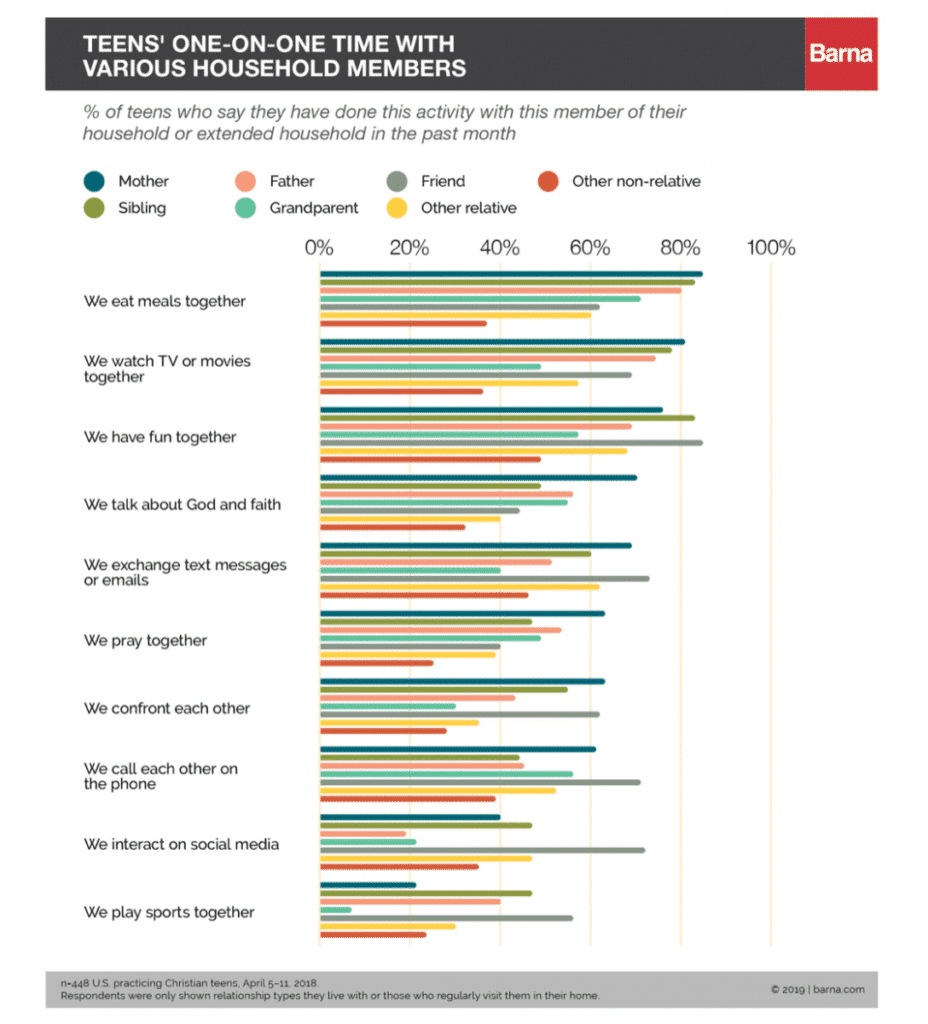
Interestingly, teens also report that their mothers are sources of emotional support; as such, many teens report going to their mother for advice (78%), encouragement (75%), and sympathy (72%).((Barna Group, 2019 lbid)) On the flip side, fathers appear to play a bigger role in meeting more physical/tangible needs of teens, such as helping financially (74%) and with logistical issues (63%).((Barna Group, 2019 lbid))
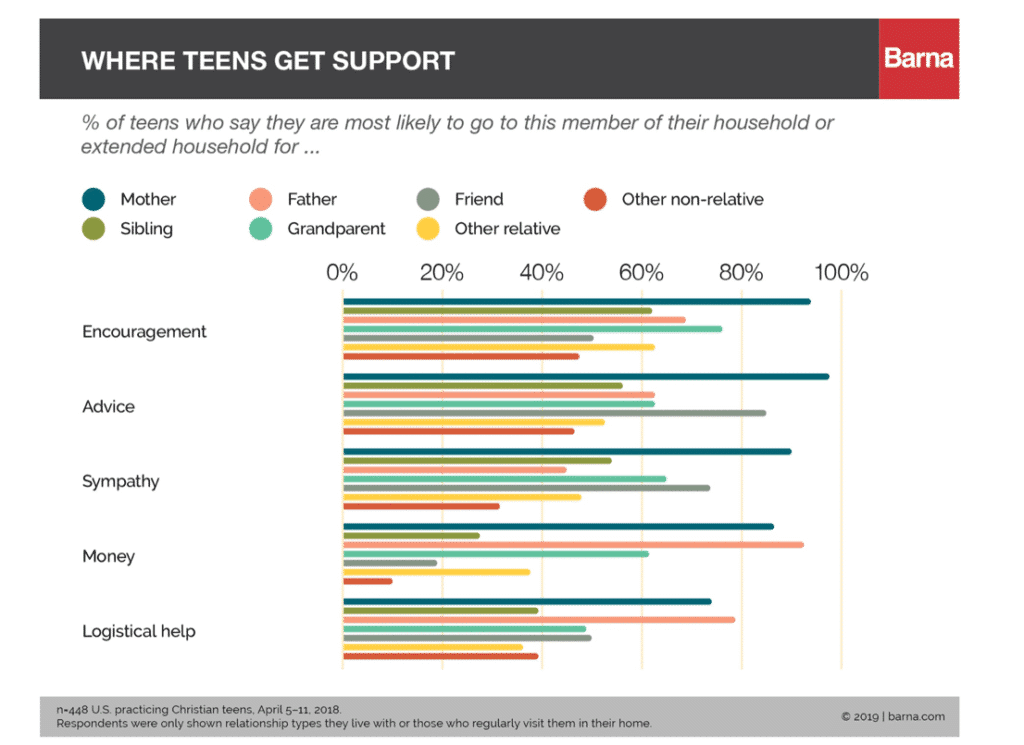
The Valuegenesis study 2, conducted in North America, highlighted the important role family climate plays in the development of children’s relationships toward God and their loyalty to the church. The study also showed that teenagers perceived their mothers as being more religious, caring, understanding, friendly, supportive, and more affectionate towards them than their fathers. This contributes to the idea that mothers play an important role in creating a particular family climate in their homes.((UPDATE-2002, Number 7. August, 2002. https://circle.adventist.org/files/download/vg2-update-v7.pdf UPDATE-2003, Number 12. September, 2003. https://circle.adventist.org/files/download/vg2-update-v12.pdf))
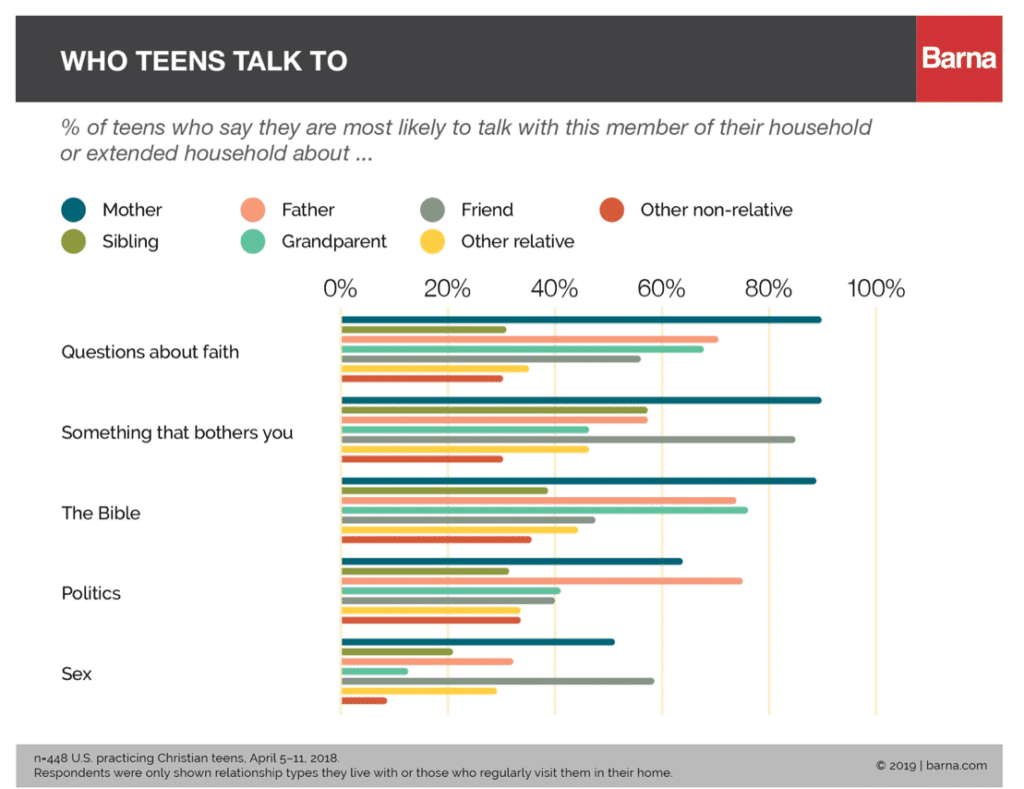
A similar correlation was shown in the findings of the Valuegenesis Study “Europe” (2013), which revealed that the strongest family factor to foster intrinsic religion was a good family climate and an affectionate mother. The highest score of intrinsic religion was achieved when a high score of church climate was combined with a highly affectionate mother.((Spes Christiana, Valuegenesis Europe, vol. 24, 2013))
Additionally, Gane (2013) determined that parents who raises their children with affectionate constraint or affectionate independence will result in a child with high levels of Christian commitment.
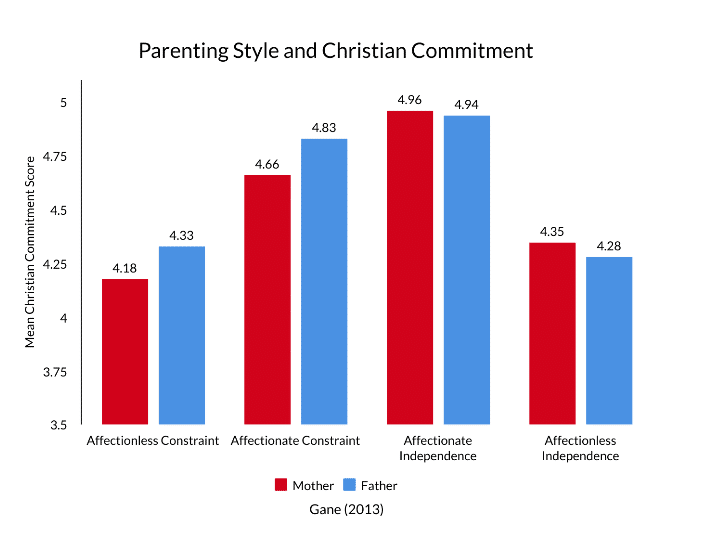
Because of this strong emotional connection, teens appear to be more willing to bring tough topics to their mothers. As such, Christian teens primarily seek out their mothers’ when it comes to questions on faith (72%), the Bible (71%), or things that bother them (78%).((Barna Group, 2019 lbid)) What a privilege–and responsibility–for mothers to experience this level of influence over the spiritual formation of their children!

Mothers appear to be the primary champion of faith and guidance in many homes. They are the primary source of encouraging church attendance (79%), teaching their children about the Bible (66%), sharing the good news of God’s forgiveness (66%), and passing on religious traditions (72%). Additionally, mothers who talk about their personal faith almost every day raised children with high levels of Christian commitment.((Gane, B. (2013). Adolescent faith that sticks. Presented at the 2013 Nurture & Retention Summit. Berrien Springs, MI: Andrews University))
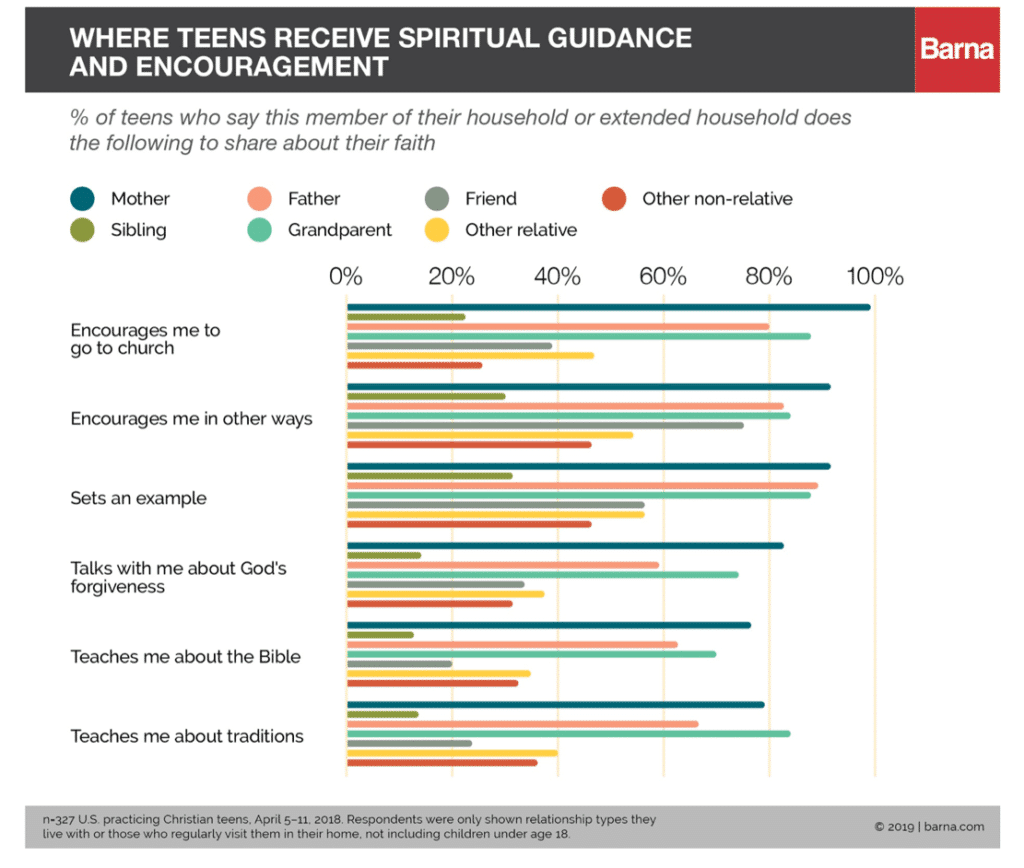
If you have a strong relationship with Jesus, it is possible that you have a mother to thank. Perhaps this is not your own mother, but instead an important woman in your life who assumed a motherly role, your wife, or even your daughter, as you watch her share her faith as she parents her own children.
And to all of the mothers, we want to say a special thank you for all you do, each and every day. We know the days can be hard and long, and the role of mother can feel underappreciated. We wanted to say: we see you, we appreciate you, and we love you. This Mother’s Day let us share our thankfulness for the beautiful example these special women have set through their constant, enduring love for God.
For more information on the Barna Group study, access the full Households of Faith report.
Creado en colaboración con el Instituto del Ministerio de la Iglesia (Institute of Church Ministry).
Published by ASTR

